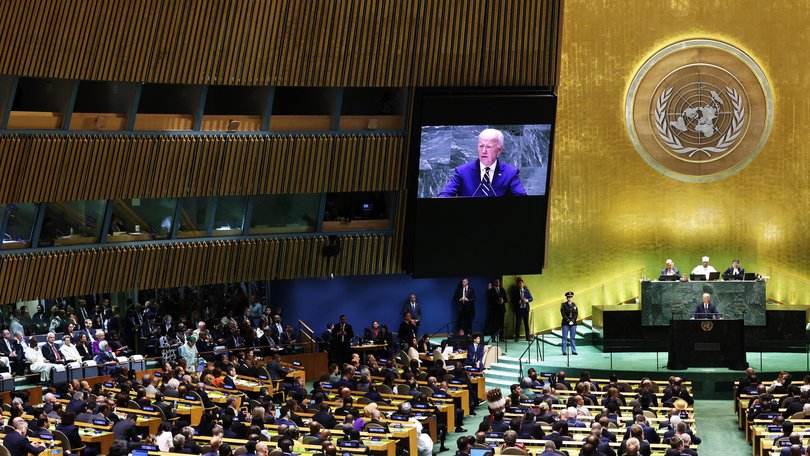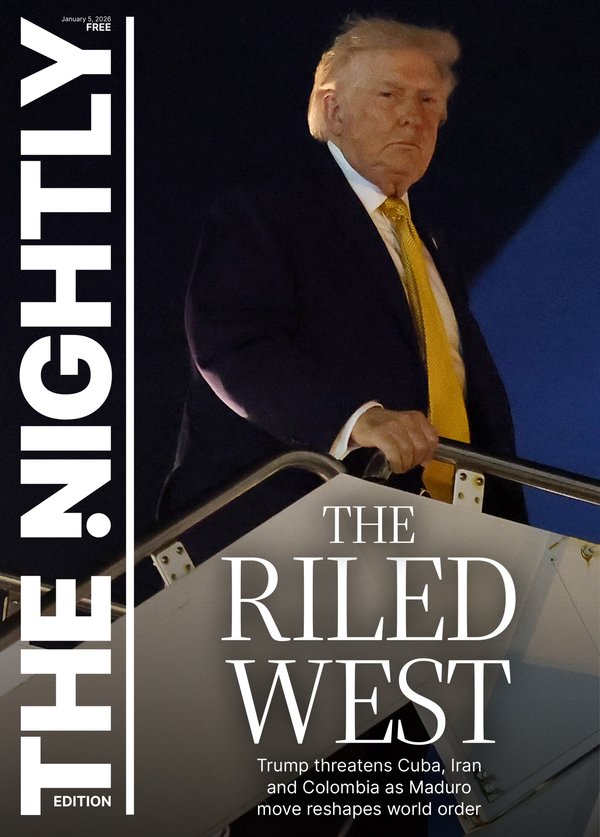SIMON BIRMINGHAM: UN’s lofty rhetoric fine in principle, pointless in practice

Little tests the adage that something is better than nothing than the state of the United Nations in 2024.
The inability of the UN to agree, or to deliver when it does agree, is the source of endless and often well-placed criticism.
Dialogue is always better than stand-off, and in this context the UN continues to still be of value. But when it cannot achieve its most fundamental of objectives, the scepticism of many is understandable.
Sign up to The Nightly's newsletters.
Get the first look at the digital newspaper, curated daily stories and breaking headlines delivered to your inbox.
By continuing you agree to our Terms and Privacy Policy.This week the annual meeting of the United Nations General Assembly has been under way in New York. The great, the far from great and the downright despotic have stood at the famous lectern to give their remarks.
Predictably, the perspective of each leader is informed by the wildly different systems of government, histories, priorities, pressures and ambitions relevant to their country.
That is how we would expect it to be, yet also what drives the scale of challenge to reverse the UN’s decline in effectiveness.
US President Joe Biden made his last UNGA speech, acknowledging the world’s troubles as he approaches the end of his presidency. Those troubles are many.
Wars between states and within them rage with no sign that diplomacy offers a pathway to end the bloodshed.
The age of blue beret-wearing UN peacekeepers appears to have been a moment in time, rather than sustainable progress towards enduring peace.
The number of nuclear weapon states and the number of nuclear weapons overall are proliferating.
Promises and progress on tackling climate change are two very different things.
As human rights keep marching forward in countries like Australia, oppression is dominant elsewhere. Fears grow over who will weaponise artificial intelligence most destructively.
Against this backdrop, the UN has tried to right the flailing ship, with its loftily named Summit of the Future delivering a wildly ambitious Pact for the Future, Global Digital Compact, and Declaration on Future Generations.
Spanning 56 actions, the Pact for the Future offers something for everyone. Well, not quite everyone, with Russia and Iran among seven nations to oppose it, meaning that two of the world’s most aggressive global disrupters will continue to prefer wreckage to recovery.
The remaining countries agree to worthy actions that all sensible people wish were easy, but wise thinkers know are beset with difficulty. These include actions to “end hunger” and “end poverty”.
The world has actually made great strides over many decades toward reducing poverty, driven not by the UN but by technological advances and economic growth fuelled by openness and trade. Right now, conflict and the resurrection of trade or production barriers threaten this progress.
In other actions, countries agree to “achieve gender equality and the empowerment of all women and girls”. Perhaps Afghanistan, for example, could just let girls go to school for a start?
Most importantly — but in the current environment also most jarringly — countries agree to “protect all civilians in armed conflict” and to “build and sustain peace,” including to “uphold our disarmament obligations” and “advance the goal of a world free of nuclear weapons”.

These goals are what the UN was principally formed to achieve, in the ruins of World War II. They are why the UN should move on from the lofty rhetoric to advance the nitty-gritty of real actions that make a practical difference.
Take the breakdown of nuclear non-proliferation for example. For too many advocates their solution is to advance a new treaty blithely calling for a world without nuclear weapons. It’s lovely in principle, but pointless in practice.
We need real UN leadership that genuinely strangles the ability of countries like Iran and North Korea to develop their own nuclear weapons capabilities. That doesn’t just require the world to hold them to account, but also those whose cooperation makes the goals of these autocrats possible.
The new Pact for the Future also advances the need for important structural reforms to the UN, including better representing Africa, the Asia-Pacific, Latin America and the Caribbean in the UN Security Council. The place of India also demands consideration.
Again, these are worthy aims to address past mistakes and better reflect modern realities. But there is a risk that more voices alone will only lead to more dysfunction or ineffectiveness.
If there is one additional reform the UN needs to embrace, it is prioritisation. When it has the attention of leaders at UNGA, it needs to remove the opportunity to be all things to all people and focus the agenda, one meaningful action at a time.
For example, rather than letting leaders off the hook with generalisations, make them explain why they won’t effectively sanction tyrants like North Korea or Iran. Push nuclear weapons states to make measurable reductions in nuclear warheads.
In such a contested world, greater specificity from highly focussed agendas and talks may not ultimately make a difference. But like the UN itself, trying is better than nothing.
Simon Birmingham is the shadow foreign affairs minister
